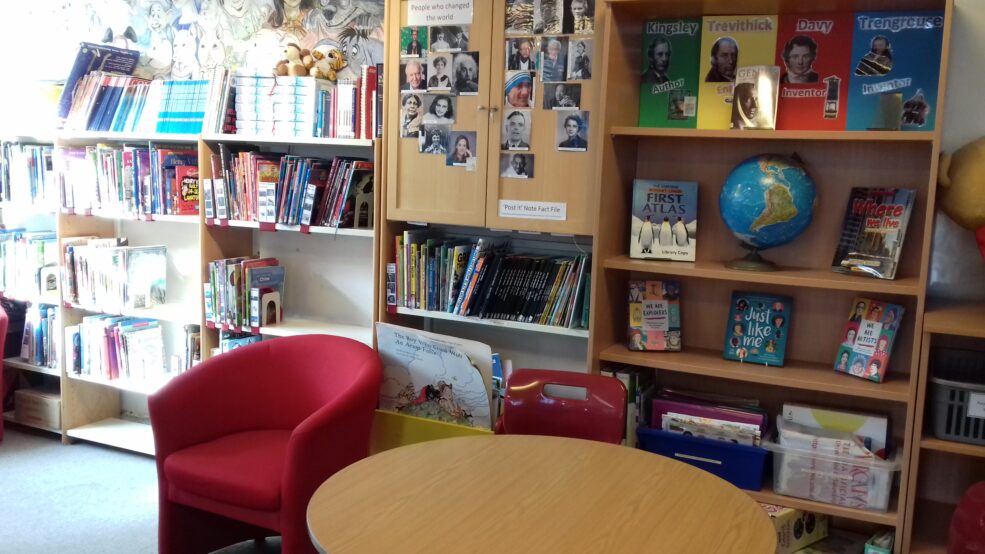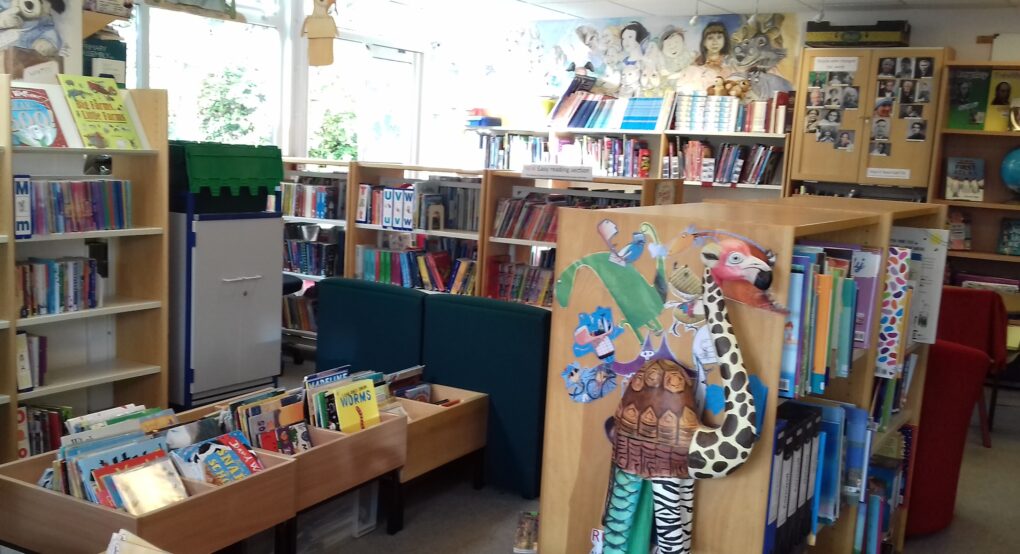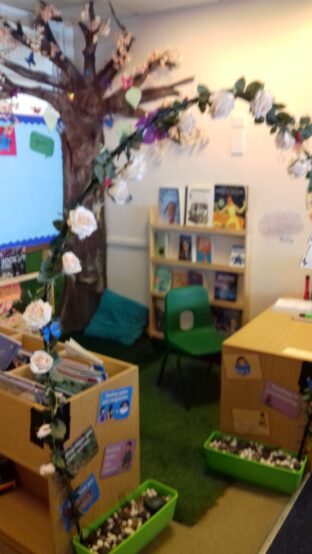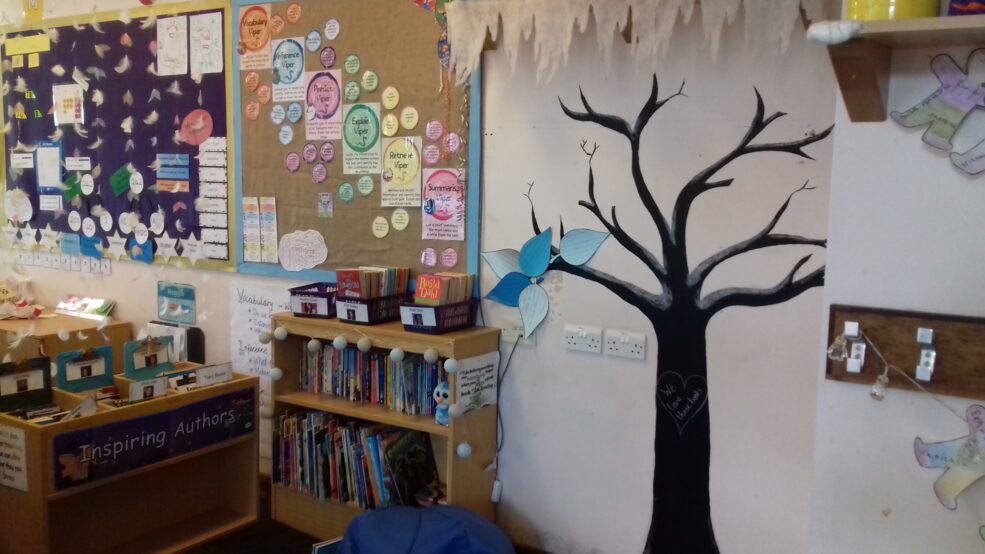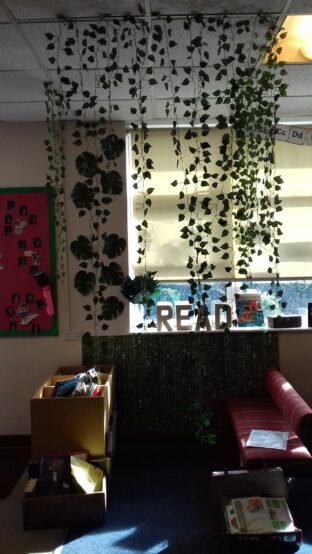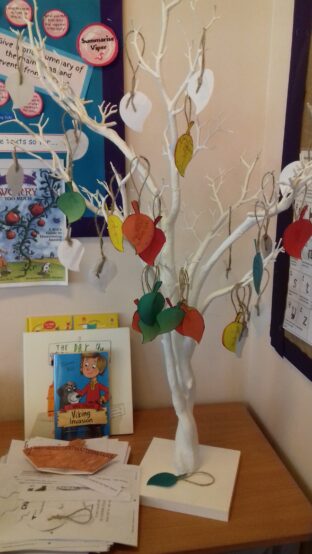Reading
“The world of reality has its limits; the world of imagination is boundless.”
Jean-Jacques Rousseau
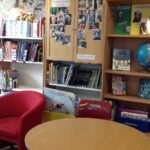
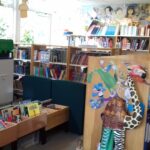
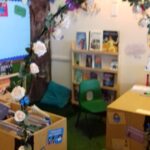
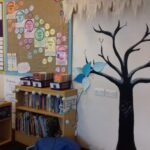
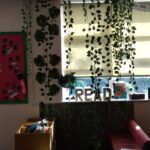
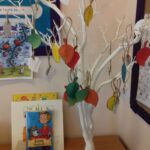
Having completed the Read Write Inc phonics programme, our children move on to Shared Reading where they focus more on the skills of comprehension as well as continuing to build their fluency.
In Y2 and KS2 we use the Shared Reading approach to teach our children to read, with greater emphasis on teaching the skills of comprehension.
Shared Reading follows the sequence outlined below:
- Vocabulary (learning to read and understand new vocabulary)
- Fluency (echo reading, partner reading and independent reading)
- Skills (a focus on either Explanation, Inference, Retrieval, Prediction, Summarising or Sequencing).
Our Shared Reading is organised into fiction, non-fiction and poetry blocks to complement our writing overview.
At Parc Eglos we teach and promote a love of reading through the following:
- High quality phonics through Read Write Inc.
- Fluency and expression taught through whole class Shared Reading
- Comprehension taught through VIPERS (Vocabulary, Inference, Prediction, Explaining, Retrieval and Summarising and Sequencing)
- Independent reading through Accelerated Reader
- Reading for Pleasure through enticing book areas, book events, regular opportunities for own reading and access to a wide variety of high-quality fiction, non-fiction and magazines, and informal ‘Book Talk’ sessions.
Each class also has a class reader which is carefully selected from the 50 Recommended Reads for each year group.
Accelerated Reader
Accelerated Reader is used in our school from Y2-Y6 to ensure that children are reading books that they can both decode and understand. The programme allows teachers to have informed ‘reading conversations’ with children so that they can be guided to books that are at the correct level for them and that they enjoy.
The programme has over 31,000 books for children to quiz on so they are able to choose books from home or from the library as well as our stock in school. This allows children to make real choices as readers and encourages them to read for pleasure.
Children take a STAR test at the beginning of each half term to help teachers place them on an appropriate level. The children then choose and read their book and take an online quiz when they have finished it. The programme tracks the children’s progress against a target which helps to motivate them and to help teachers monitor reading within the class.
For further information for parents please click on the PDF below.
To find out whether a book is part of the programme please go to the Accelerated Bookfinder link.
Parents Guide to Accelerated Reader
Accelerated Reader Bookfinder
The online book searching tool Accelerated Reader Book Finder can be used to find out the Book Level of your chosen book. This means that you can check the reading level of books you have at home or select from the library. It is important that children read books that are closely matched to their reading level to ensure success.
Home Learning
We encourage all children to read at home with an adult or older sibling each evening. Children have reading diaries to record their reading journey. We also give children the opportunity to take home a ‘sharing book’ for you to read to your child, which enables them to enjoy listening to high quality children’s books and promotes a reading for pleasure culture.
Click the links below to see 50 suggested recommended books for reading at each year group:

